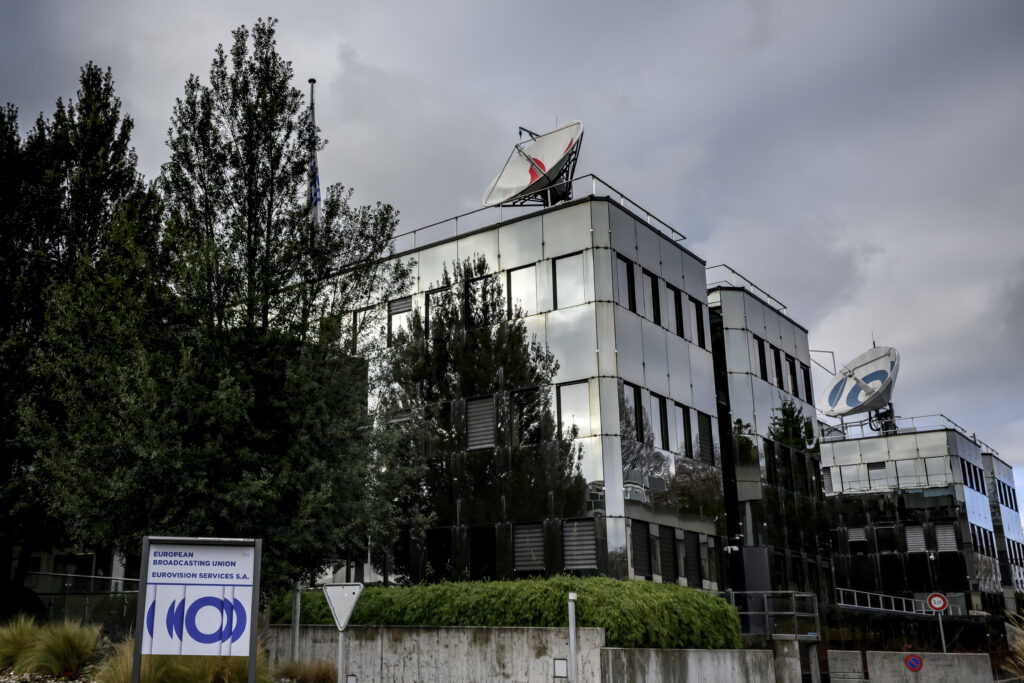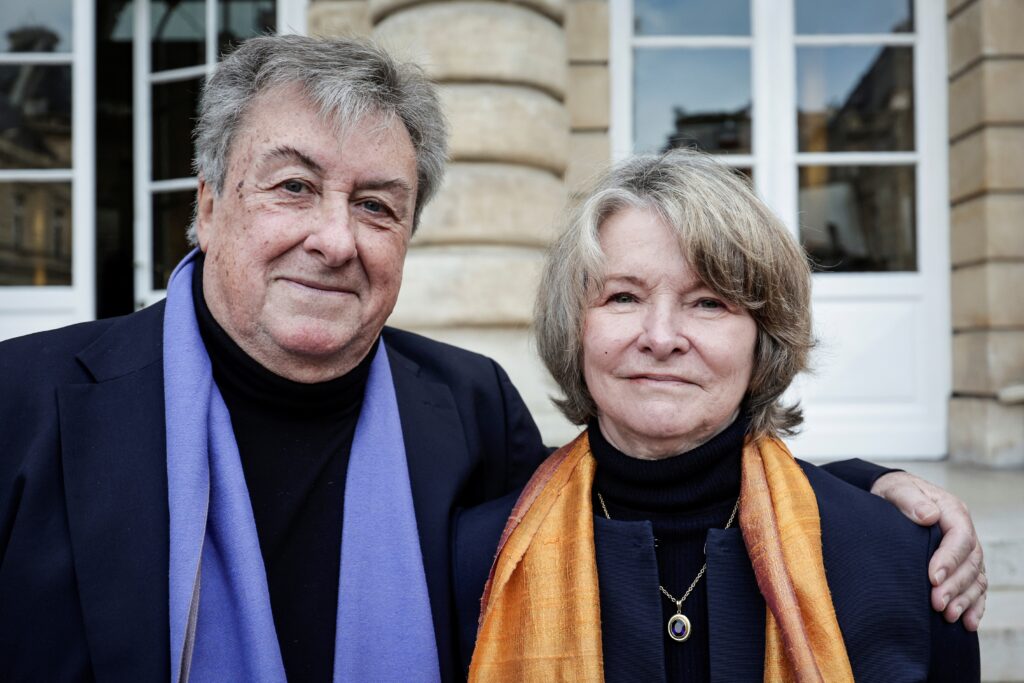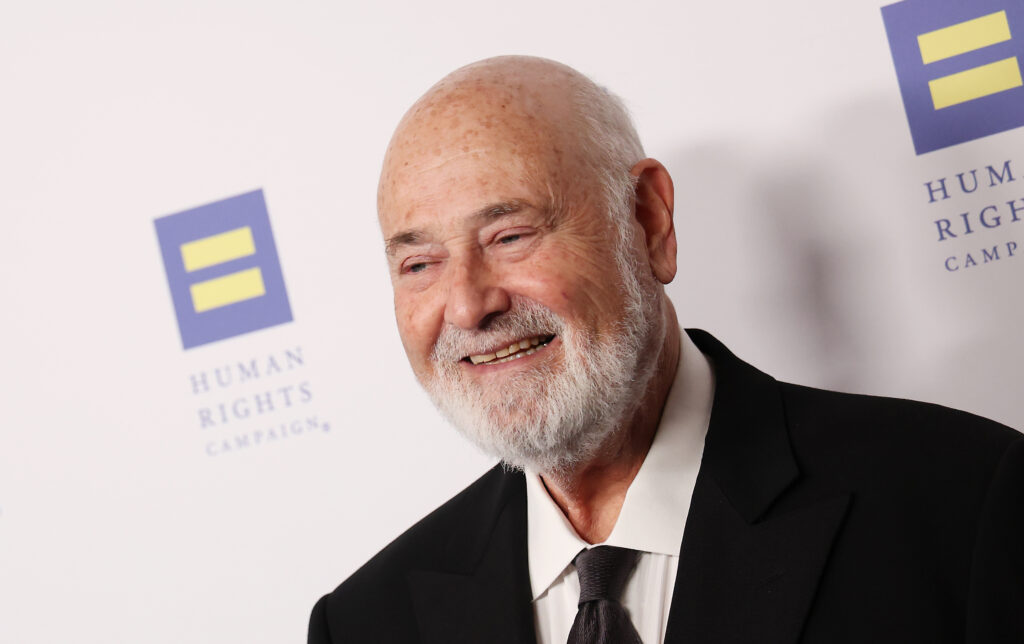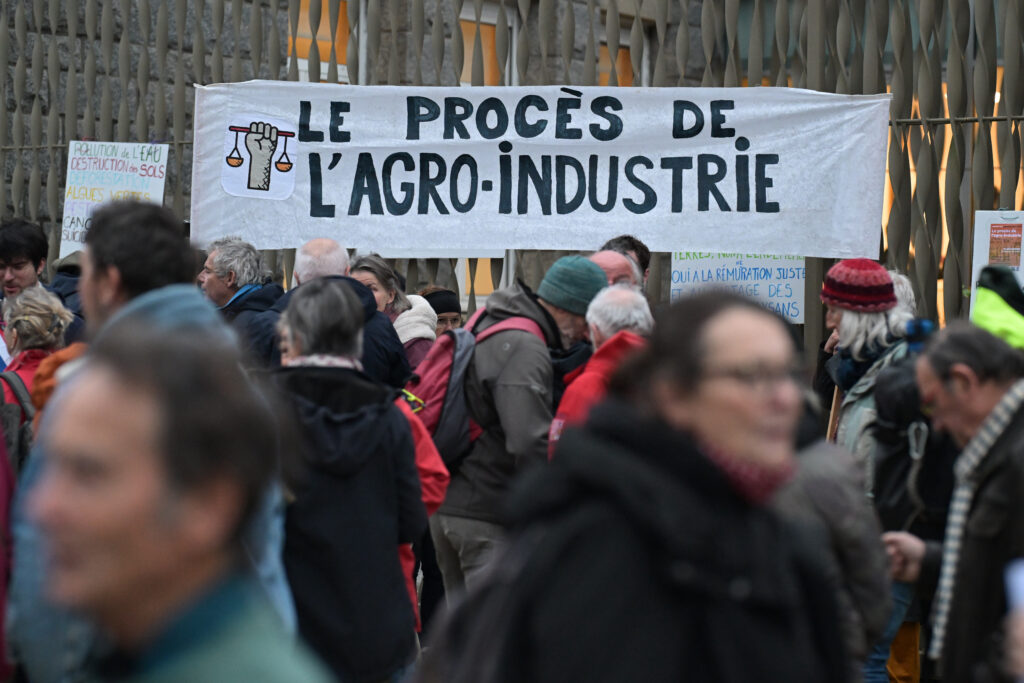Des peines allant de trois à six mois de prison avec sursis ont été requises lundi devant le tribunal judiciaire de Lorient contre 12 militants écologistes qui avaient bloqué un train transportant du blé en mars 2022.La procureure Laëtitia Mirande a souligné le préjudice financier “conséquent” de l’action pour plusieurs sociétés, dont la SNCF et l’entreprise destinataire du chargement, Sofral Le Gouessant.Le 19 mars 2022, une cinquantaine de militants, réunis à l’appel du collectif “Bretagne contre les fermes usines”, avaient bloqué entre Saint-Gérand et Noyal-Pontivy (Morbihan) un train de marchandises destiné à une usine voisine d’aliments pour bétail.Les militants avaient symboliquement édifié un mur en parpaings en travers des voies ferrées et déversé 142 tonnes de blé sur les quelque 1.300 contenues dans les 22 wagons du train de marchandise.Les militants pensaient en fait intercepter une cargaison de soja à destination d’une autre société de l’agro-industrie, le groupe Sanders.Les prévenus, huit hommes et quatre femmes, ont reconnu leur participation à cette action mais ont réfuté les faits reprochés, parmi lesquels l’entrave d’un train de marchandises et la dégradation en réunion.Âgés pour la plupart d’une trentaine d’année, les militants ont refusé de répondre aux questions de la présidente et largement utilisé leur espace de parole comme tribune contre l’agro-industrie, convoquant tour à tour les atteintes à la biodiversité, la prolifération des cancers, la “pollution généralisée”, les suicides des agriculteurs ou encore la quête effrénée du profit.L’action de mars 2022 était “juste et proportionnée”, a défendu l’un des prévenus, Axel Lopez, présenté comme un des principaux responsables.Sa camarade Aleksandra Dergacova, appelée à sa suite à la barre, a présenté l’action comme “honnête”, “pacifique” et “cohérente”.”C’est l’inaction des pouvoirs publics qui nous encourage à agir”, a renchéri Nina Rolland, une des prévenues, dans une salle d’audience pleine. Les avocats de la défense ont plaidé la relaxe. Une petite centaine de personnes étaient présentes à l’extérieur du tribunal afin d’apporter, en musique, leur soutien aux militants écologistes.Ines Léraud, autrice de la BD à succès “Les Algues vertes, l’histoire interdite”, a été citée en tant que témoin.L’opération, surnommée Yakari par ses instigateurs, a été moquée par Me Alexandre Boucher, avocat de Sofral Le Gouessant, qui l’a comparée à une “attaque de diligence” digne d’un “mauvais western”.Le jugement sera rendu le 11 février 2026.





